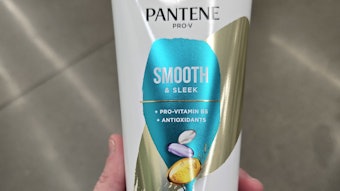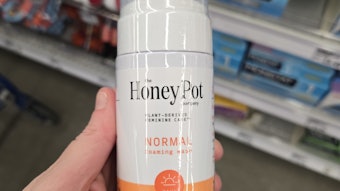
Leading up to Flavorcon 2023, Perfumer & Flavorist+ connected with Pall Corporation's technical specialist, Global Technical Services, Food & Beverage, Marina Ferreira. The interview touches on the challenges when it comes to flavor filtration, key factors companies should consider when choosing a filtration method, and a taste of Ferreira's upcoming talk, "Filtering Flavors – The Back to Basics for Achieving Sustainability in Your Process," in November.
What are some of the current challenges companies face when considering various methods of flavor filtration?
Marina Ferreira [MF]: Companies face several challenges in their production of oils, washes, and blends. These include—
Quality Assurance: Proper filtration is crucial for meeting the quality requirements of the final product, such as turbidity, color, flavor profile and cloud point. Without effective filtration, essential characteristics of desired flavor profiles might be lost to the environment, or the media coated in filter aids used in filtration.
Production Efficiency: Inadequate processes, such as gravity oil/aqueous separation, weeks-long winterization, and paper-and-cone filtration can increase production time and costs. This results in production scheduling inefficiencies and lower throughputs with time, delaying the delivery of the final product to the end customer.
Sustainability Concerns: With the growing emphasis on sustainable processes, companies need to ensure that their filtration methods are environmentally friendly, reduce waste, and minimize environmental impact.
Can you name some of the key factors companies should consider when choosing a filtration method?
MF: When choosing a filtration method, companies should consider—
Effectiveness: The chosen method should effectively remove unwanted particles without compromising the essential characteristics of the flavor profile, such as understanding if the filtration media should be cellulose only, cellulose embedded with diatomaceous earth, or membrane filtration.
Cost Efficiency: The method should not lead to unnecessary increases in production time or costs. For instance, companies that use paper and cone or gravity-fed filtration, which require long hours and reprocessing, may lead to aroma losses and other compromises in product quality due to their exposure to open air.
Sustainability: With sustainability becoming a front runner in recent years, companies should opt for filtration methods that reduce waste (such as the use of powdered filter aids), minimize environmental impact (like reducing the winterization time and temperature), and promote eco-friendly practices.
Operational Efficiency: The filtration process should help reduce production bottlenecks and improve the overall efficiency of operations, by consistently operating at the required flow rate necessary to meet the production schedule while providing the flexibility to produce batches of different volumes each day. Over the years, the primary area of focus has shifted more towards sustainable filtration methods that not only ensure product quality but also reduce environmental impact. This evolution is a testament to the industry's commitment to both quality and environmental responsibility.
You joined us for Flavorcon Virtual in 2021, we're looking forward to hosting you on stage at this year's event! What knowledge will attendees gain from your session?
MF: Thank you for having me again! Attendees of this session can expect to gain the following —
Comprehensive Knowledge: They'll understand the fundamentals of flavor filtering, including the various techniques and methods available, along with their respective pros and cons.
Sustainability Insights: Attendees will learn about sustainable filtration methods, their benefits in terms of reducing waste and environmental impact, and how they can be incorporated into their production processes.
Operational Benefits: We'll delve into how sustainable filtration methods can help alleviate production bottlenecks, enhance efficiency, and lead to cost savings, ensuring long-term success in the flavor processing industry. I'm excited to share these insights and engage with the attendees to promote more sustainable and efficient practices in the industry. See you there!
For more information on filtration for the flavors industry visit https://bit.ly/3R754Us.










